Hans Christian
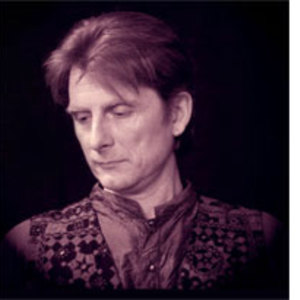
- Genres:
- Classical, International, Jazz, New Age, Pop/Rock
- Meta styles:
- Cool, Ethnic Fusion, Indian Subcontinent Traditions, Opera
- Styles:
- Chamber Jazz, Indian
1) Prior to joining Yes, Jon Anderson released a couple of singles under the name Hans Christian in 1968 2) Hans Christian's musical journey began many years ago in Germany by studying the cello. "I started to play when I was nine years old and had a private teacher for 10 years. Although my teacher imposed a strict and disciplined approach to learning the instrument I remember him fondly; he was preparing me to go to the music conservatory to become a professional cellist. Deep in my heart, though, I knew all along that this was not going to happen.
2) Hans Christian's musical journey began many years ago in Germany by studying the cello. "I started to play when I was nine years old and had a private teacher for 10 years. Although my teacher imposed a strict and disciplined approach to learning the instrument I remember him fondly; he was preparing me to go to the music conservatory to become a professional cellist. Deep in my heart, though, I knew all along that this was not going to happen." His life was to unfold along different lines.
...Since his father was a minister at a Lutheran church in Hanover, Hans played in that church many times and confesses some early musical adventures: "I would steal the key to the church from my father's desk sometimes and sneak into the church to play there at night. It was dark, cold and filled with terror, but the acoustics were amazing. I am talking about a building in the Neo-Gothic style, big enough for almost a thousand people. So, I would sit in front of the altar, that sacred space, and I didn't know if I was violating God's space or was welcome. I loved those anxious moments and expressed myself in wild improvisations."
The unyielding urge to express himself also led him to pick up the bass guitar as a teenager and get absorbed in rock music. "I would play along with Hendrix records, and Santana, Pink Floyd and the Doors. I started to play in local bands in Hanover while also playing classical music. Somehow I liked the discipline of the cello studies and the excitement of the rock bands."
Perhaps this duality is a key ingredient to understanding Hans Christian's music and his approach to the music of RASA. Although based on traditional material the songs on RASA's CDs were given an unconventional orchestral treatment that seems both familiar and unpredictable. Hans acknowledges, "Kim's voice beckoned me to wrap her melodies in a sacred tunic. That's how we developed our own sound."
When he was 21 years old he decided to move to Los Angeles to study bass at Musician's Institute in Hollywood. It was a big adventure, not knowing anybody in LA and without a place to stay. But within six weeks of his arrival he played at the Whiskey on Sunset Blvd, and within a year he was very connected to the local music scene. "I played every hole-in-the-wall club you can imagine, constantly playing with many different kinds of groups, from dark and hard-etched bands to folk and performance artists. It was a fulfillment of my dreams because I could do whatever I wanted, and I tried many different things."
Steadily he climbed the ladder in the scene and eventually worked with established people like Robbie Robertson, Toni Childs, Victoria Williams, and the Sparks. But a persistent urge to express his own ideas kept him on the run. "I felt a strong pull towards doing my own music, and since I lived in the downtown LA area at that time, I connected with a cool little theater scene where I could play solo cello concerts that incorporated light projections, dance, and story telling. I really stretched out on the cello, practicing constantly, composing difficult pieces and pushing myself very hard."
By 1988, after returning from concerts in Europe, however, he suffered from major burn-out. "That was a very difficult time because I had no ambition left. Eventually I just left LA, driving north, sleeping in the car, drifting. " He began a new life in the San Francisco Bay area and started Allemande Music, a recording studio and production company. "I had a studio in my home and an interest to work as an engineer and producer, besides composing my own music and putting it out on my own label."
With growing experience came more projects, and in 1998 Allemande Music moved into a commercial space in Fairfax, California; the same year he also met Kim Waters and started collaborating musically with her under the name RASA. Their work since then has yielded five CDs and numerous concert appearances throughout the United States.
A relocation from the busy San Francisco Bay area to the more serene settings of Door County, Wisconsin in 2002 has allowed Hans to dive ever deeper into his music. A steady stream of recording projects has found its way into his recording studio there, and to this day Hans is producing, mixing, mastering, and composing a variety of projects...
RASA seems like a perfect vehicle of expression for such a multi- tasking musician. Reflecting on his collaboration with Kim Waters, Hans suggests: "We hope that our listeners will be touched by our music as they dive into our CDs and that they will go onto a transcendental journey?"
- Sort by
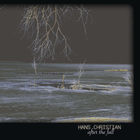
After The Fall
- Year:
- 2020
- Tracks:
- 7
- Bitrate:
- 320 kbps

Nanda Devi
- Year:
- 2015
- Tracks:
- 9
- Bitrate:
- 320 kbps
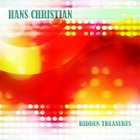
Hidden Treasures
- Year:
- 2014
- Tracks:
- 9
- Bitrate:
- 320 kbps
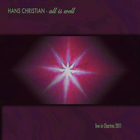
All Is Well
- Year:
- 2011
- Tracks:
- 8
- Bitrate:
- 320 kbps
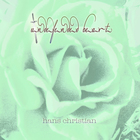
Undefended Heart
- Year:
- 2010
- Tracks:
- 10
- Bitrate:
- 320 kbps
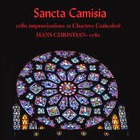
Sancta Camisia
- Year:
- 2008
- Tracks:
- 13
- Bitrate:
- 320 kbps
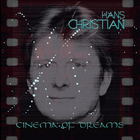
Cinema Of Dreams
- Year:
- 2007
- Tracks:
- 11
- Bitrate:
- 320 kbps
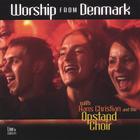
Worship From Denmark
- Year:
- 2007
- Tracks:
- 11
- Bitrate:
- 166 kbps
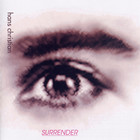
Surrender
- Year:
- 1996
- Tracks:
- 9
- Bitrate:
- 320 kbps
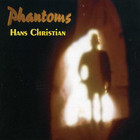
Phantoms
- Year:
- 1994
- Tracks:
- 11
- Bitrate:
- 320 kbps
 Dissidenten
Dissidenten  Mahmoud Ahmed
Mahmoud Ahmed  Paul Winter
Paul Winter